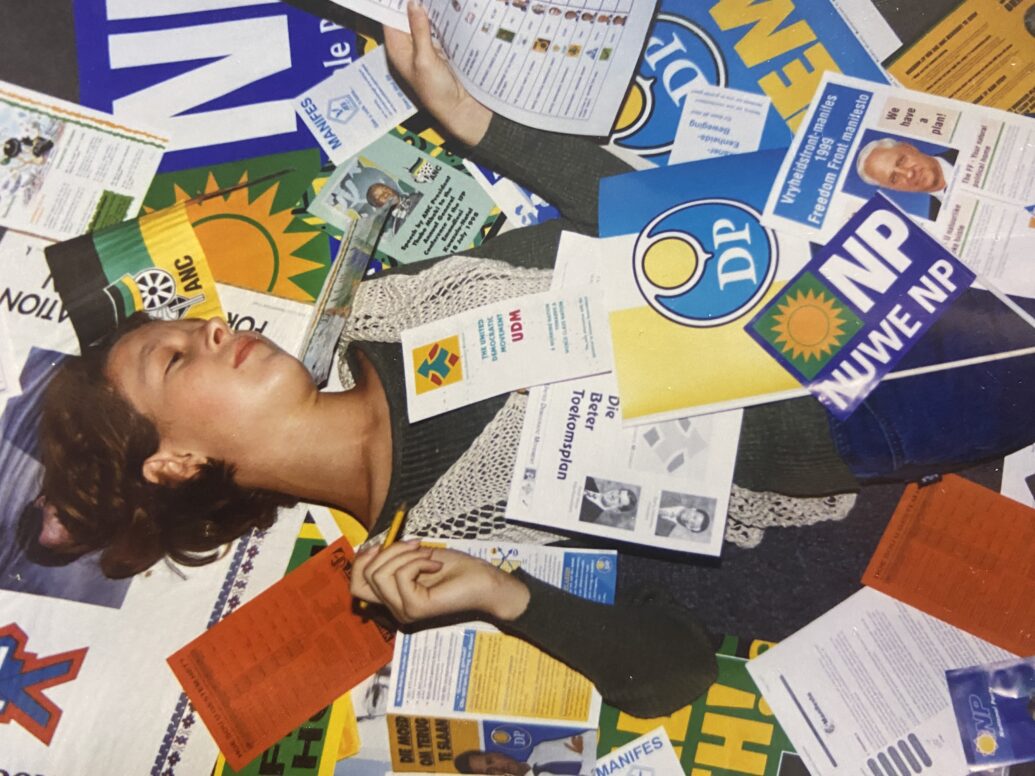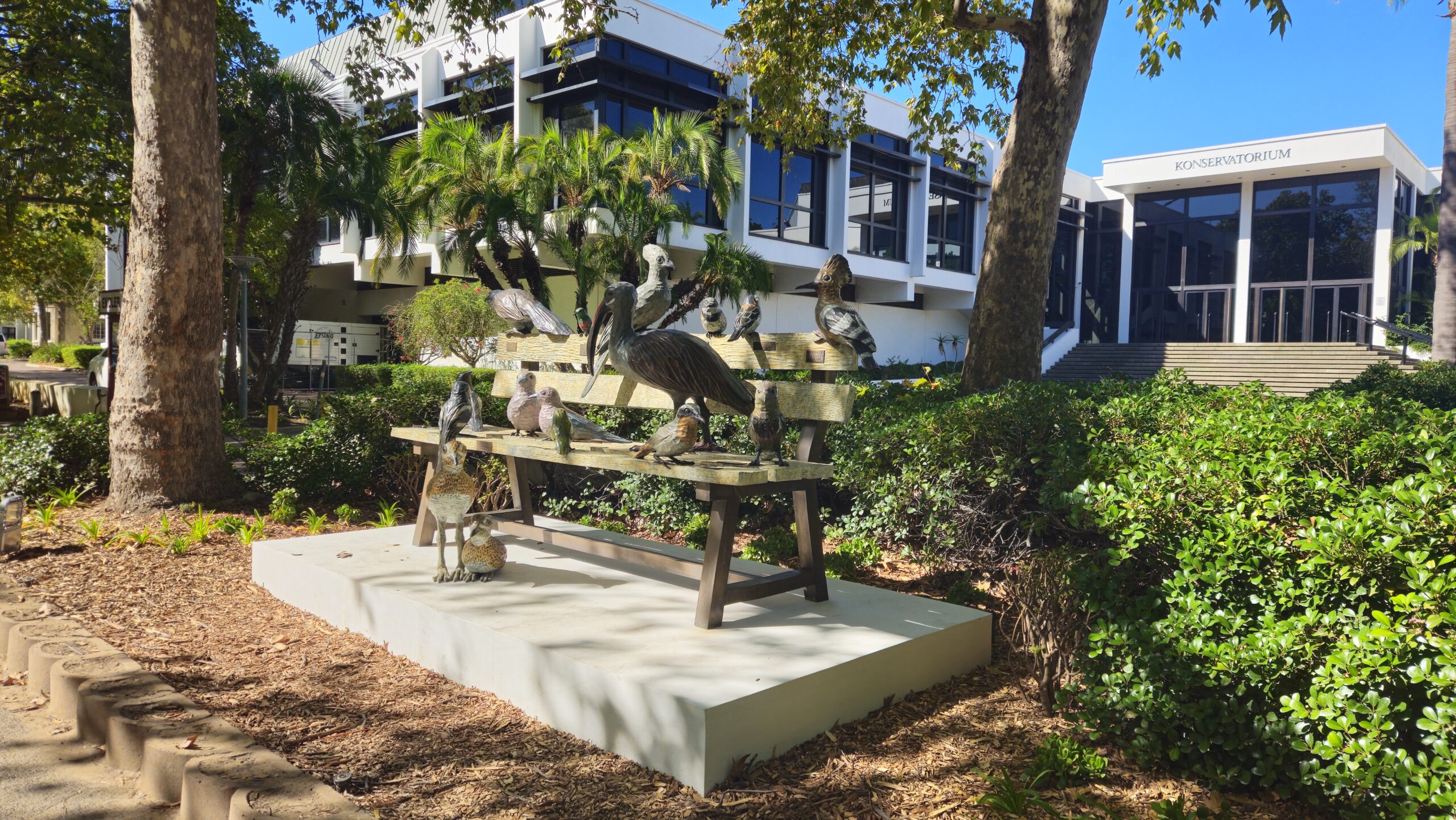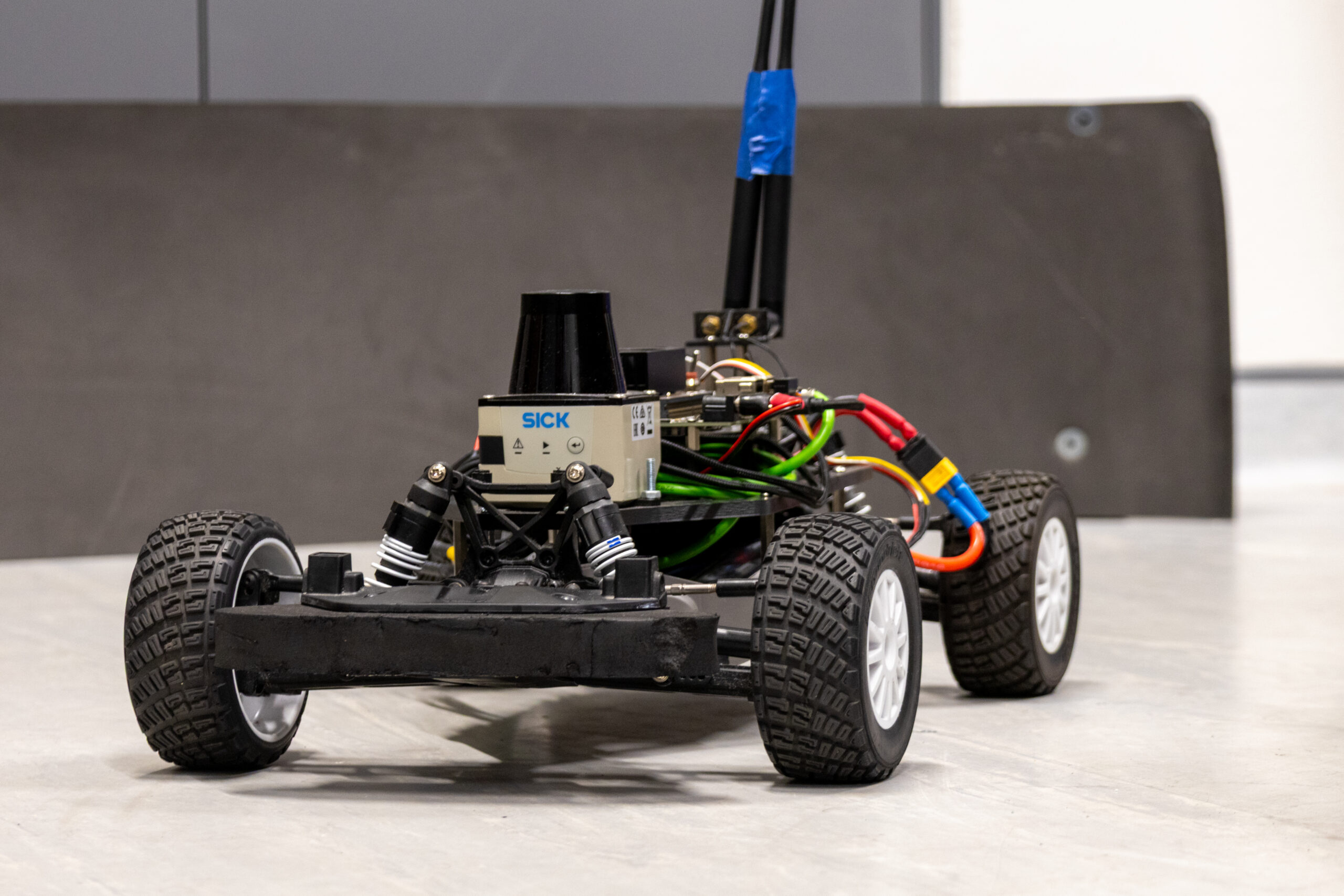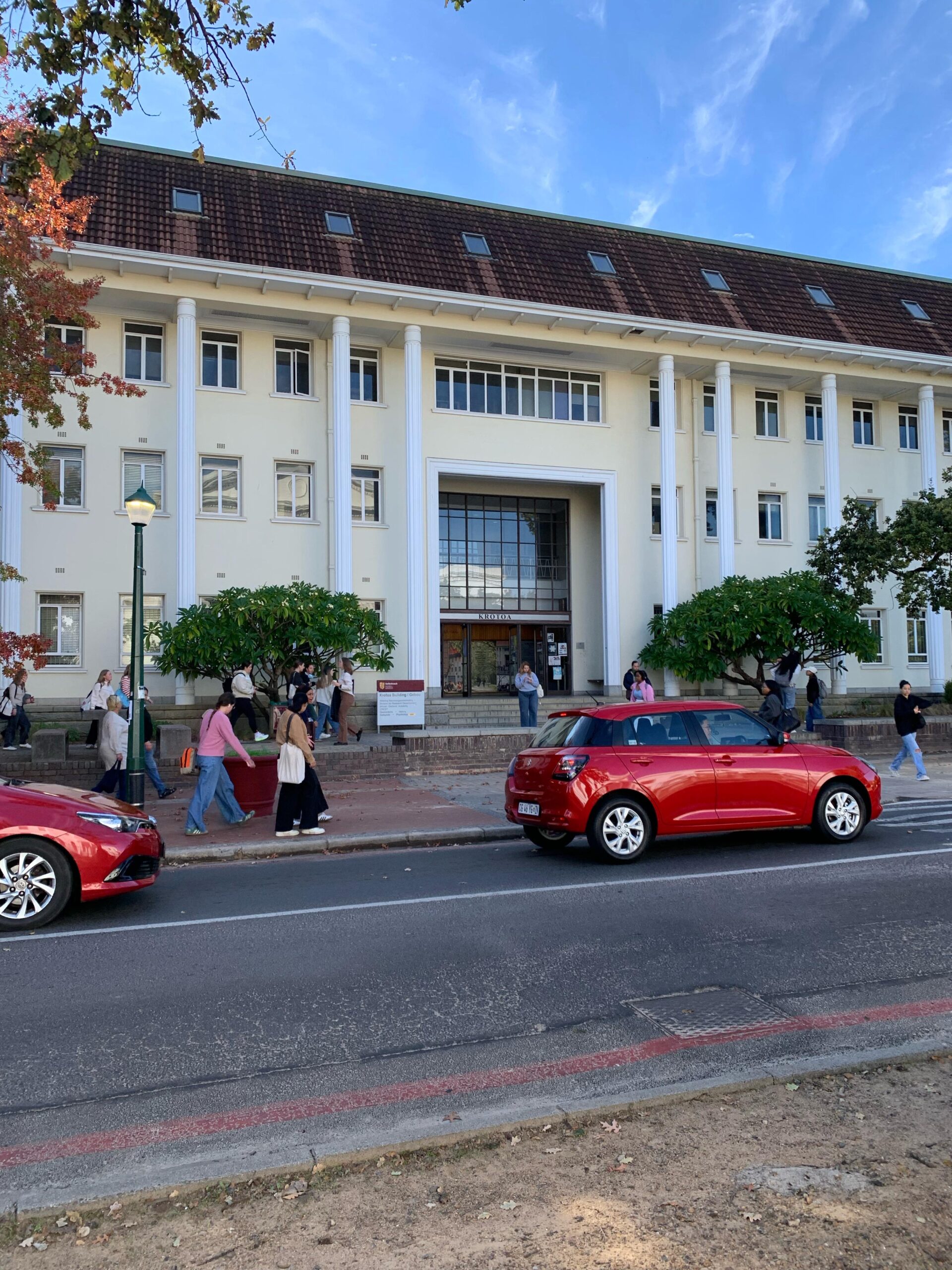
As election season descends upon the student body of Stellenbosch University (SU) questions about the role of the SRC, the voting procedure and voter turnout arise. Die Matie corresponded with the (SU) Electoral Commission (TEC) for the 2023/2024 election term to discuss these matters and more. Bridget Massey, Chairperson of the Electoral Commission and third year LLB student, explains, “The act of voting is the cornerstone of a democratic country and in this case, students have their say in who is elected into student leadership and the decisions that those leaders will make. Student voting is a powerful way for individuals to exercise their rights, voice their opinions and shape the future of this University.”
Massey further emphasises that, “a decline in voter participation poses a serious threat to the life and culture of Stellenbosch University” and that there are a myriad of issus that need to be addressed but can only be resolved with student input.
The student leader election process is three-fold: Firstly, there are the SRC elections, which the Electoral Commission manages. Secondly, ex officio body elections which include the Academic Affairs Council, Prim Committee, Senior Prim Committee, Societies Council, Tygerberg Student’s Representative Council, and the Military Academy. Thirdly, there are the elections of the Faculty Student Committees, Societies and House Committees.
The SRC election occurs in two stages; campaigning and voting. The Electoral Commission explains: Voting takes place through the My.SUN voting platform which can be found under the “Campus” tab. Voting will open on 24 August and will close on 31 August at 23:59. Every registered student at Stellenbosch University will have access to vote in the SRC elections. Voting is completely anonymous and secure, and each student will be allowed to vote for a total of 9 candidates during the SRC elections.
Wandile Sebothoma, TEC Public Relations Officer and fifth year MBChB student says, “The resources that students need to support their studies ie. financial aid, academic assistance, and study facilities can only be allocated if upper management is aware of the needs of students. The only way the rectorate would be made aware of the shortfalls of residence catering, bursary and registration issues, transport to move-in/go to class, and safety on campus is through the voice of the SRC – our direct line of communication [is] to rectorate, not always the HC in charge of our immediate area. Students should vote so they are sure the person who will represent their needs is competent to fill the role and has the best interest of the student body at heart.”
The TEC highlights that the voting process is a constitutionally mandated element of student leadership at SU and “not a fruitless administrative task.”
“Disengagement from this process threatens the democracy of leadership at Stellenbosch and brings into question the calibre of leaders appointed,” says Palesa Makena, TEC Electoral Officer and fifth year MBChB student.
With a voter turnout of 2618 students, only 8.83% of the entire SU student body, in the 2022 SRC election, voter apathy appears to be a massive hurdle the Electoral Commission has to overcome in its attempt to conduct a fair, legitimate and productive election.
“Voter apathy is a reality faced by the TEC in previous years, however, the role the TEC must play in improving voter outcomes is not clearly defined. This is a multifaceted problem, which requires a series of interventions to remedy the situation, one such intervention might be demonstrating ‘cause and effect’. Most people, and I speak not only with regards to myself but a greater student demographic on Tygerberg perhaps fail to see the valuable role played by the TSRC and how they shape the day-to-day lives of students”, says Fezaan Desai, TEC Administration Officer and third year MBChB student.
Desai suggests that “active engagement with more students (especially students new to campus), perhaps in smaller groups, and informal settings might go a long way in remedying the situation…”
Massey believes that a “comprehensive voter education system through co- and extracurricular activities” has to be prioritised to draw voters in and have them make informed decisions.
“The Commission recommends that the SRC should appoint the 2024 Electoral Commissioners at the same time or immediately after the SRC managers are elected so that ample time for voter education can occur. In certain environments within the university, such as Residences, voter turnout and participation are far greater than in non-resident students and I think that this is due to the residences creating a sense of community. A sense of community within the University on a larger scale needs to occur,” Massey states.
She further says, “And even if the Electoral Commissioners were elected earlier, it is important to realise that it cannot just be the Electoral Commission who strives to educate voters and increase voter turnout. There needs to be a buy-in from student leadership structures, residences and most importantly, Stellenbosch University management to create a comprehensive voter education system.”
When asked if they believe there is a direct correlation with low voter turnout for SRC elections and what we see nationally, in terms of political apathy from many young people, Fina Macuacua, the Director of Finance and Logistics for the TEC and final year BAgric (Business Management) responded, “Yes… When it comes to campaigning, many parties make a lot of promises, and they all think that they can do better than the current ruling party but once they are in power, they don’t do as they said they would. The same thing happens in the University’s elections. The prospective leaders see the mistakes of the current leaders and promise to do better but I don’t think that they ever do the research on how the mistakes come to be. So, they always think they can do better and when they are finally elected, they also follow the same path. This is because of the lack of research backing up their promises. Students see the same pattern occurring every year and this makes them lose hope. The same thing happens nationally. People do not want to vote because they don’t trust that they will do as they promised.”
Massey also added that, “there definitely is a direct correlation between low voter turnout for SRC elections and what is seen nationally when it comes to political apathy for many young people.”
She continued, “The voter turnout in the first democratic national election in 1994 was 86,87%. In 2021 the voter turnout was 45,86%. 2024 marks 30 years of democracy in South Africa. I think that hope for change in the country has disappeared due to the loss of trust in the government and the challenges that the country faces, such as high rates of unemployment, lack of access to education and gender-based violence. I think there is a dominant idea that “nothing will change” and that “my vote won’t make a difference”. We are all aware of the issues that Stellenbosch University has faced in the past, especially last year, and the fact that redress and transformation have been slow to change. I think that the institution itself and the SRC need to reassure learners and the student community that Stellenbosch provides education in accordance with the Constitution and the rights enshrined in the Bill of Rights and in a setting free from discrimination.”
As the 2024 national elections draw near, only 13,87% of people aged 20 to 29 are registered to vote as of 16 August 2023, according to the Electoral Commission of South Africa.
Die Matie urges all its readers to register to vote in the national election and attend caucuses and vote in the upcoming SRC elections.
The Electoral Commission has narrowed down six themes that it would like candidates to focus on during their election run and caucuses: bridging the gap between promises and practical change (22 August), inclusive and progressive leadership: striving for advocacy of the diverse Stellenbosch experience (23 August) on Tygerberg campus, academic and financial exclusion (24 August), what do power and representation look like as an SRC member (25 August), racial reformation and multiculturalism at Stellenbosch University (28 August), and GBV and LGBTQIA+ (29 August). The general caucus will take place on 30 August.



